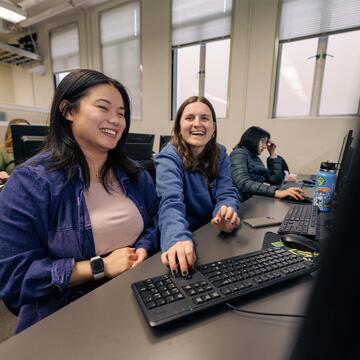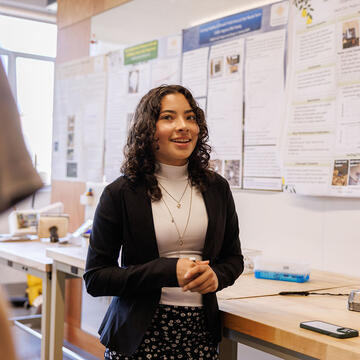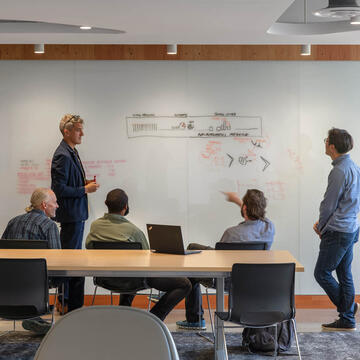
Geospatial Analysis Lab
Providing education and support for all GIS-based learning
The Geospatial Analysis Lab (GsAL) provides education and support for all GIS-based learning at the University of San Francisco. Through the lab, students and faculty develop a comprehensive understanding of the geographic information science technologies and techniques, including ArcGIS PRO, Google Earth Engine, LiDAR technologies, web mapping applications, remote sensing, GIS programming, and more.
The lab is a training ground for USF students who want to learn the latest geospatial programs and techniques, including: ArcGIS PRO, Google Earth Engine, hydrologic modeling (HEC-HMS), LiDAR, web mapping, and remote sensing. Students are trained on how to perform a variety of spatial analyses and create professional quality maps and web applications to share their results.
What is Geospatial Information Science (GIS)?
What is GIS and why do I need it? Geographic Information Science (GIS) can be defined as the integrative science of abstracting physical, spatial, and temporal relationships in order to gain both quantitative and qualitative insights. Simply put, it is the science of spatial analysis with maps. Today, GIS and its related technologies are ubiquitous parts of life. We rely on GIS to explore new locations on Google Earth, to finding our way in cars, to assess the value of our home on Zillow, and to “check in” on Facebook. Spatial information is also a critical component of big data projects that are being developed to serve an amazing diversity of purposes from real estate market analytics, to sun lighting social justice issues (the Black Lives Matter for example was studied and supported using twitter feeds that were geo-coded), to natural resource management (studying the effects of climate change on wildfires in the West).
Geospatial technology is used in a wide variety of industries, including federal, state and local government; non-governmental, environmentally focused agencies; environmental science; public health; and urban planning. As an industry, geospatial technology is one of the fastest growing sectors in the modern economy. According to the Bureau of Labor Statistics, the labor market in this sector is growing at an annual rate of almost 35% and the commercial subsector within this field is growing by 100%.
GIS Courses & Certificates
Students can take any of the elective classes to gain specific GIS skills or they can complete the GIS Certification program, which consists of 10 units and prepares students in methods of data collection, analysis, storage and visualization of various forms of spatially referenced data. The GsAL has two pathways for both graduate and undergraduate students to obtain a certificate. In order to complete the certificate, graduate students need to take the 3 GIS core classes plus 2 electives of their choice. Undergraduate students can earn a certificate by taking two 4-unit core GIS courses (GIS 1 & GIS 2) and one 2-unit elective.
Faculty Research
GsAL faculty members conduct research about GIS, remote sensing, wildfires, environmental planning, resource management, evapotranspiration, environmental engineering, LiDAR technologies, and more. Our faculty has international reach as well as local impact.
Geospatial Analysis Lab
Harney Science Center G24
San Francisco, CA 94117-1080


